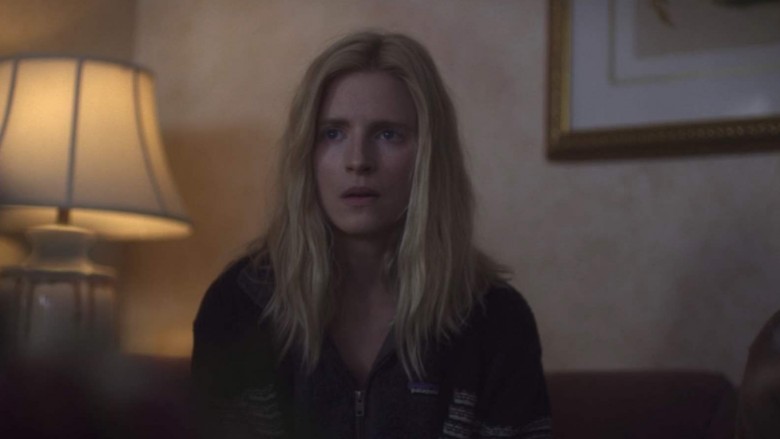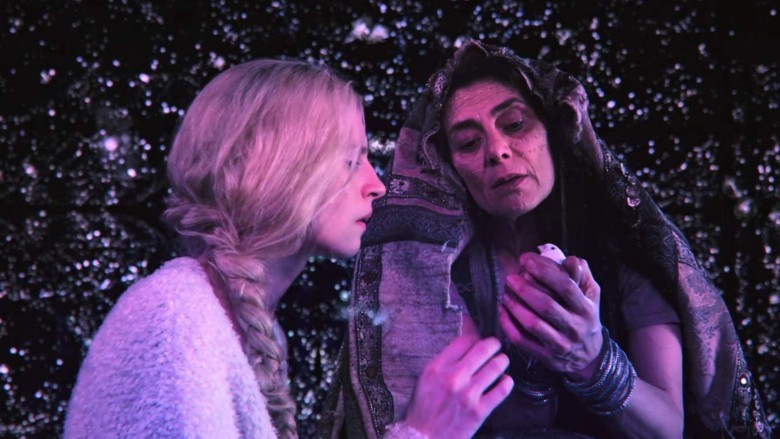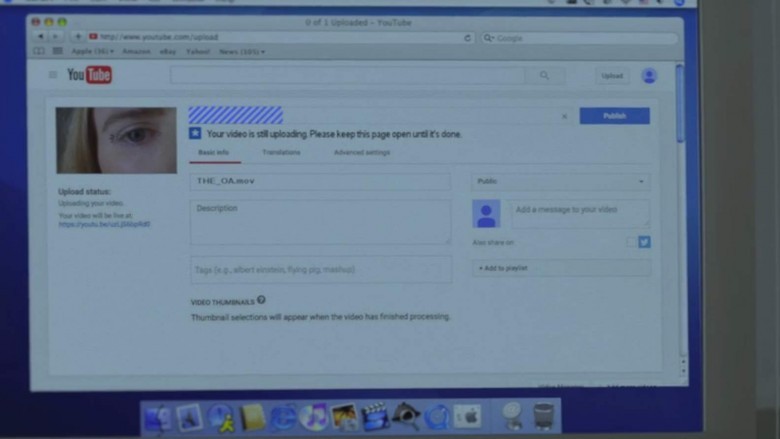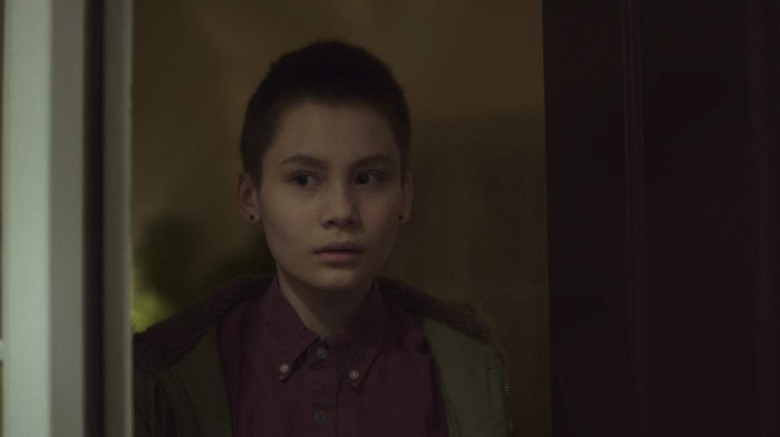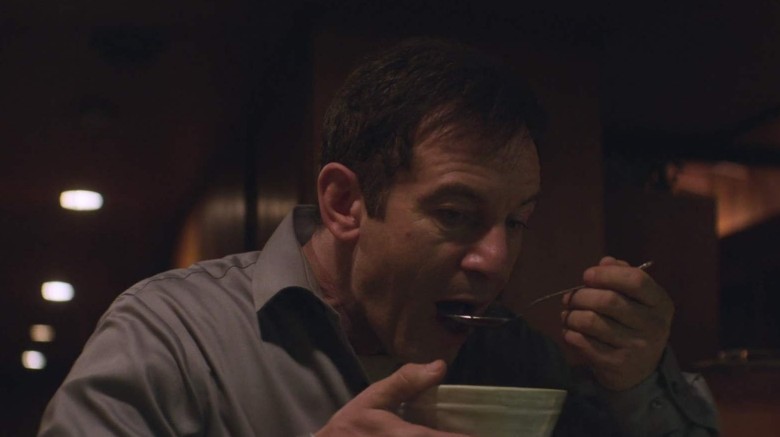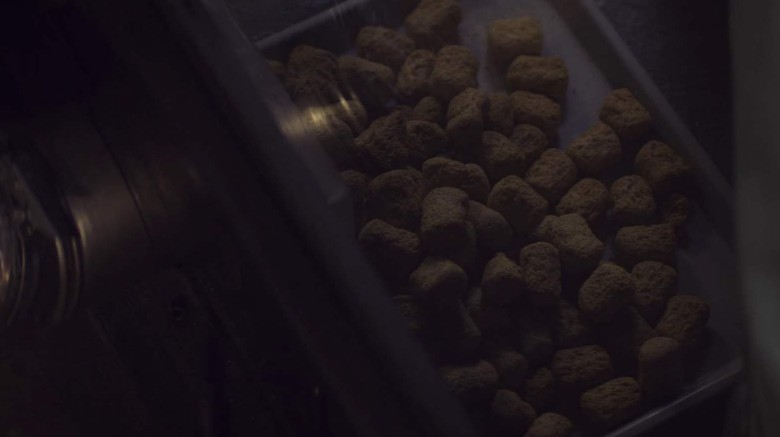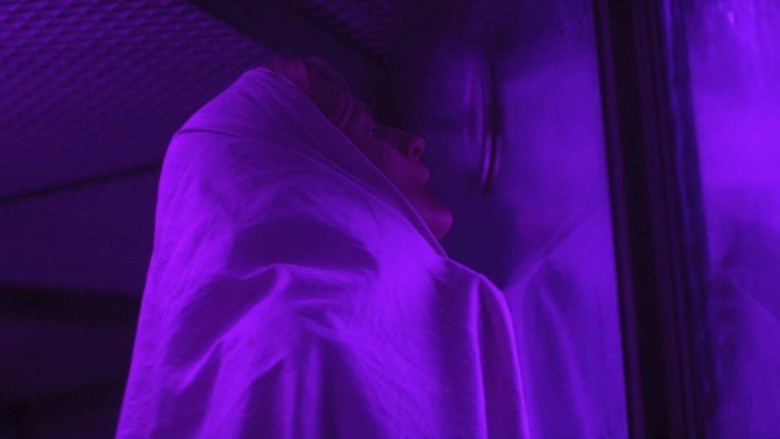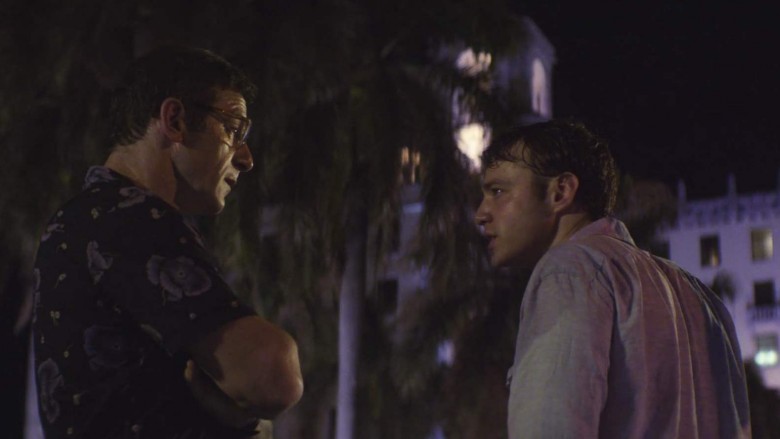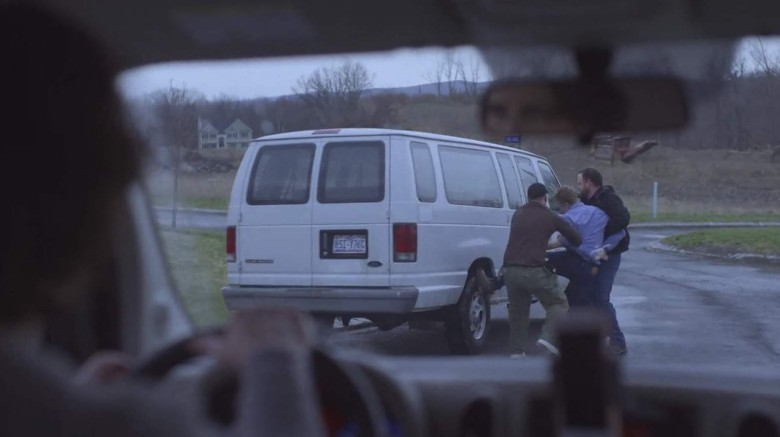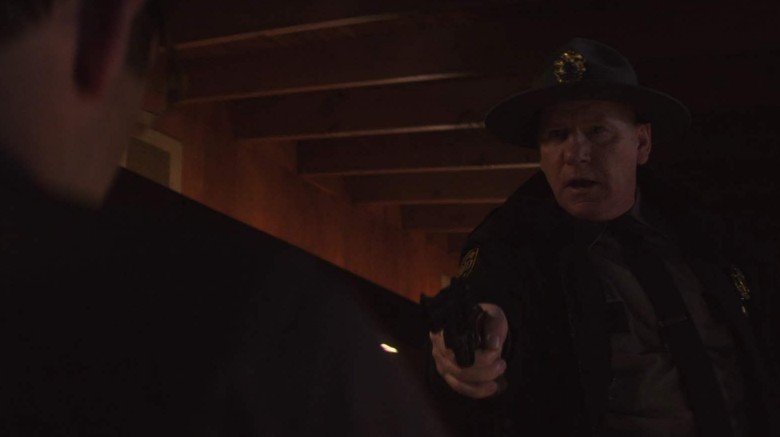Dumb Things Everyone Just Ignored In The OA
Netflix's The OA has generated a lot of buzz, with some loving it, some hating it and many somewhere in between. The show's a deliberately ambiguous tone invites analysis and theorizing, making it hard to discern which weirdness was deliberate and what was an accidental goof.
The writers of the show have a clever way of dodging complaints about the plot by presenting the story with the frame of a highly unreliable narrator telling a story to a group who are interpreting it in their own heads. The show's ambiguity is hard-coded—a lot of weirdness can be waved off as "Well, she may be lying or crazy, and they might simply be receiving her story without nitpicking at minutiae." A clever move by the writers, but it won't save them from us.
We won't be getting into the controversial ending, despite how poorly it was foreshadowed and the fact some reviewers saw it as tasteless. There are reasons to believe there's a deeper significance that may be explored in the next season, if there is one, so we'll give the writers the benefit of the doubt. (For now.) We also won't be covering the interpretive dance aspect. Some found it ridiculous, others inspiring. It's subjective, and only really as dumb as you want to think it is. After all, we're talking inter-dimensional magic here.
What does the OA even mean?
Why, oh why, does she insist on being called the OA?
She first hears this name as a voice calling her after she eats a bird in a parallel universe to restore her sight (what a show this is). It sounds like 'away' or 'OA' and she calls it "a name truer than Prairie. Nina even." Later she decides it's actually an acronym for Original Angel. She concludes this after Khatun shows her her wings and Prairie asks her "Am I like you?," to which Khatun replies, "No, you are the original."
Even if all that's true, it's still a bit of a leap. The "away" sound could have been anything—like the terrified squawk of the bird she swallowed. Khatun doesn't exactly specify what Prairie is the original of, it's Prairie who comes to the conclusion she's an angel. Not a terrible conclusion in the context, but it could have been Original Alien, Original Spirit, or Original Pancake House for all she knows. Why would her inter-dimensional True Name be an acronym of two English words anyway? They might be speaking in Russian in the parallel universe, and she'd still be Оригинальный ангел—close enough, but then the acronym OA would be pronounced more like "oh wah" than "away".
The Original Angel isn't even a name, it's a title!
Where it gets really egregious is the way she expects to be able to go around talking to everyday people like "I'm the OA" with no context whatsoever. She confuses people unnecessarily. You can't say that to the cops investigating your 7 year disappearance and then be surprised when people think you have mental issues. OK, sure, you went to an alternate reality and discovered your True Name. Fine, that's cool, it happens. But why insist upon it in situations when people are clearly asking you what name you go by in this particular universe? She could have easily said, "My government name is Prairie Johnson, but I prefer calling myself the OA", but no, she had to be silly about it. Even the Game is still Jayceon Terrell Taylor, legally speaking.
When it's the police asking you questions, you're much better off giving them the name on your driver's license rather than "Balthazar, Lord of the Suburbs."
YouTube is apparently magic
YouTube plays a suspiciously prominent role on the show, though considering how much product placement there is for Applebees, CostCo, Amazon and Verizon, it's perhaps not surprising. Those probably-paid-for shoutouts were realistic enough for the setting, and we can't really begrudge Netflix for making some extra scratch, but YouTube was key to the entire plot. In the first episode, Prairie uploads a plea for help to the service, which is then viewed by Steve, Alfonso, Jesse, Buck and Betty, ultimately bringing them together to hear her story.
How did they find it? She included no tags whatsoever, and the title was just THE_OA.mov and consisted of a close-up of her eye while she said some craziness. How did they all stumble across this one random YouTube video before midnight on the same day? There are 300 hours worth of video uploaded onto YouTube every minute, and it's unlikely the video would have even been indexed by Google in that time. The idea of five people in the same town stumbling onto the video before midnight is impossible to believe. So many videos uploaded onto YouTube are never viewed by anyone, there's an entire website devoted to fishing them out.
There might be some higher power at work here. The idea of supernatural forces manipulating YouTube algorithms deserves a series of its own. Subscribed by an Angel, perhaps.
What's with the open doors?
The OA tells her followers they have to leave their doors open if they want to hear her story, which is a bizarre and unverifiable request they nevertheless adhere to. But why? There are theories. It makes sense on some levels, as an expression of trust in the OA, or to signify people opening up their mental doors to new experiences or the opening of doors between dimensions. Since she was captive for seven years, it could be an extension of her long desire for freedom. It could also be a subconsciously spiteful response to her adopted parents removing her bedroom door: "If I don't get a closed door, none of my disciples do either!" Some even believe it's based on a misinterpretation of her vision of the school shooting where the cafeteria doors were locked.
But on a practical level, it's ludicrous. Let's assume the mystical power of the OA means none of them have someone walk into their house and steal things while they're away. It'd still get cold. Bugs would get in the house. Other than Betty, the rest all live with other people. There's a single scene when Buck's dad notices the door is open and closes it. Surely someone else had a family member raging "Oh my God! Why is this door always open? There's a raccoon in the living room!"
Hap's tomato allergy
A key plot point involves Prairie preparing a stew for the villainous Hap in which she's added crushed sleeping pills. The tension is whether or not he'll get wise to her suspicious behavior. He never figures out she's trying to drug him, instead immediately having an intense allergic reaction to the tomatoes in the stock.
Most of the time tomato allergies manifest as skin irritation, stomach problems or itching, but while tomato-induced anaphylactic shock is rare, it's certainly possible. But the problem here is why an intelligent man who knew he had an extreme allergy ordered a chicken stock containing tomatoes in the first place. Why have ingredients which could kill you and then have a blind woman (who you haven't told about said allergy) prepare your food? Even worse, an episode prior, Hap was shown with his hands right next to ketchup. Sure, he didn't eat any, but he didn't even seem cautious. That would have been the time to introduce a food allergy plot device, rather than having it appear out of nowhere.
Once the scene is over, we never hear about the tomato allergy again. It only serves to foil Prairie's plan in a way in which she doesn't get caught, and to further the plot. Why didn't she just put the sleeping pills in the coffee we saw her prepare for him? Or stab him? Then at least she and the other captives could enjoy some nutritious soup before calling the police.
However, some believe it goes deeper, and may not be a plot hole at all. Eagle-eyed Redditor BustnIt noticed Prairie made Hap a sandwich with Thousand Island Dressing, which contains tomato puree. He denies the idea it may simply be a mistake by the set designer as the bottle is in-focus and in-frame. It was all a ruse! Some might question basing a theory on a bottle of salad dressing, but it's the tastiest smoking gun we've seen in awhile.
Food and poop
The way Hap feeds his captives is unsustainable. While he offers to get Prairie any books she likes, he has an otherwise cartoonish disregard for them. It wouldn't have been all that difficult to keep them relatively comfortable, but instead he feeds them what appears to be dog pellets, which can't be good for the digestive system. While dog food does contain the necessary protein, carbohydrates and fats to survive, they are at different proportions from those of human dietary requirements. Considering dogs can produce vitamin C in their own bodies and it's rarely added to dog food, you'd expect most of the captives to die of scurvy within the first two months.
As a scientist, he should have known that. If he was too busy to feed his captives, he could have at least given them Soylent and the occasional sandwich. All Scott wanted was a coffee and a cigarette! Hap is a monster.
Then we come to an issue hotly debated on Reddit. Where do they poop? The obvious answer is into the stream, the same stream they have to wash out of and drink from. Even if it's wholesome natural mountain water continually flowing, this is a disaster. It's no wonder Steve is sick all the time—he's downstream. Some believe Hap might have let them use the bathroom while they were zombified, or perhaps the ziplock bags were to poop in. Or maybe angels don't poop.
Some believe the toilet facilities weren't depicted because what we see is the listeners' interpretation of her story. But come on, at least one of those high school boys would have wanted to know about the poop.
Scopolamine doesn't work like that
One of the key ways Hap is able to control his subjects involves a gas which renders them unconscious and susceptible to suggestion. There are some initial problems with the way the gas appears in the show, particularly the delivery method. Why are there vents leaking gas into the other cells? Why doesn't Hap notice the captives spending a year sucking the gas out through said vents? It wouldn't be impossible Hap would miss this particular ruse the first couple of times it happens, but surely over the months he'd glance at the monitor and be all "Oh, hell no."
The biggest issue is the gas is scopolamine, according to urban legend used by South American cartels to turn people into pliable zombies. Problem is, there's no scientific evidence it does anything of the sort. Scopolamine is derived from the Scopolia genus of the nightshade family and is used to treat motion sickness and nausea, with side effects including sleepiness, blurred vision, eye dilation and dry mouth. It was used by German doctors in the 1800s (with morphine) to help women avoid the pain of childbirth by inducing Dämmerschlaf, or "twilight sleep."
The substance became popularized following claims by American obstetrician Dr. Robert House that the chemical worked as a 'truth serum' which could be used in criminal interrogations. Despite having dubious scientific credentials, his claims were repeated by the media as fact and since then have cropped up repeatedly in rumors and conspiracy theories, as well as an overused plot device.
The whole Cuba subplot
How exactly did Hap fly his private plane into Cuban airspace with a comatose passenger without raising eyebrows? Even now with the friendlier US-Cuban relations, only those with export licenses issued for humanitarian reasons or to further the U.S. national interest are allowed to fly directly from the US to Cuba. Hap could have transferred through a third country like the Bahamas, but it raises the question of how he got Homer through all that without his passport. Bribery? Yeah, bribery.
Then there's the point when Homer tries to escape and the desk clerk calls Hap on the phone to tell him, in Spanish, that his "mentally challenged son" is on the loose. Previously, Hap told Renata he couldn't speak Spanish. Which is it? Is it a mind game? To what end?
The whole plan of Homer seducing Renata so Hap could capture her was really odd. She'd been portrayed as being a sophisticated woman with no lack of young male attention, so why would she immediately be drawn to this broken young foreigner with no game? That's not to say a woman like her couldn't be interested in some mysterious sad-eyed American, but Hap's whole plan was based on the assumption he could just give Homer a nice meal and a cigar and then be all "OK, sure, I've kept you in captivity for years starving you of the human touch, but now I need you to go pick up this beautiful Cuban lady who's way out of your league." What was going to be the plan if she took one look at Homer and was profoundly uninterested? What would have been the plan if she asked Homer to come back to her place instead? There are so many ways it could have failed miserably, but of course it succeeded, because plot. And how did he drug her, get her on his plane and get her into the United States without someone saying, "Something ain't right here"?
So why Cuba? Many of these plot problems would be easy to explain if Hap had just kidnapped someone from New Jersey instead.
Whatever happened to military school?
There's an interesting irony in how, just as Steve finally starts to become slightly less of a reprehensible human being, he's sent to military school. It was also pretty cool that Betty's original plan of claiming the military school enforcers were molesting him simply failed when no one paid her any heed (and Steve was no help whatsoever). It was realistic; sometimes plans just fail. And she had the convenient $50,000 check in her pocket to free him anyway.
Then Steve apparently just goes back to ordinary school as if nothing happened. Perhaps he's hiding out somewhere away from his parents, but you'd think Principal Gilchrist would have already been informed Steve was being sent to military school. The cost of sending a kid to such an institution is around $30,000 – $40,000 a year, so his parents must have already paid at least a few grand for the initial costs, if not a whole year in advance. They would be livid to discover Steve had absconded.
What exactly did the two enforcers do with the money? When they got back to the military school, what did they say? "Sorry, the kid escaped." Major violation of duty of care. They'd lose their jobs at the least and probably suffer lawsuits and criminal charges. All for $25,000 each. Maybe as a spur of the moment decision driven by opportunism, sure. But we never hear about military school again.
Sheriff of convenience
We need to talk about Sheriff Stan. He somehow gets into Hap's cabin, despite the code locks, and sees the captives on the monitor. Leaving the front door unlocked seems really unlike a character as meticulous and obsessive as Hap, but we all make mistakes.
They make a deal, but there are some holes in it. We can understand Stan being so desperate to save his wife, he'd give Hap the benefit of the doubt. But why didn't the OA or Homer simply say, "Hey, sure we'll try to heal your wife, but could you please arrest our kidnapper like you're supposed to?" Once they're out of the cells, Hap doesn't have much leverage. Sheriff Stan could have shot him, rescued the captives, then asked them nicely to cure his wife.
There's also a confounding lack of consequence for Hap shooting Stan and Evelyn in the end. You'd think Prairie could have mentioned that to the cops when she was found. How many sheriffs have gone missing with their ALS-suffering wives in towns near abandoned mines in the U.S. over the last few months? Few. Why doesn't she tell the FBI?
Sure, she may be reticent about sharing her weird experiences with the authorities, but there's a difference between saying "I'm an angel and have traveled to different dimensions" and "We were held prisoner by a guy who shot a cop." She had more than enough info for the feds to track the cabin down, and even if Hap and the captives had escaped (even into another dimension), they'd be able to work out who he was and put a BOLO out on him. That's what the FBI is for! At least then we might get better episodes for the next season of The X-Files.
